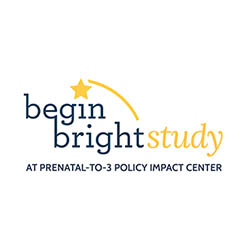Did you know state policies play an important role in reducing child maltreatment?
Rapid neurological development makes children especially susceptible to harmful stressors, such as maltreatment, during the prenatal-to-3 period. Though we may expect prevention programs, such as Early Head Start, to reduce maltreatment, research shows that even unexpected policies, such as Medicaid expansion and certain tax credits, also play a significant role. Learn more about six evidence-based state policies that reduce child maltreatment in our Evidence Review Snapshot.
©April 2024, Prenatal-to-3 Policy Impact Center, All Rights Reserved. The Prenatal-to-3 Policy Impact Center at Peabody College of Education and Human Development, Vanderbilt University translates research on the best public investments into state policy actions that produce results for young children and society.



